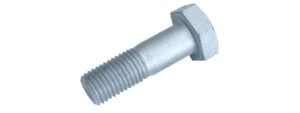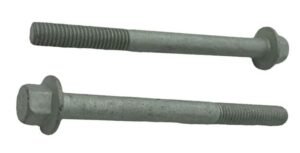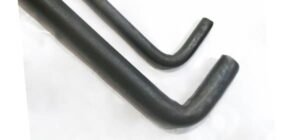High-tensile fasteners are critical in modern engineering and manufacturing, serving as the backbone of structures and machinery exposed to extreme forces. Designed to resist significant tension and stress, these fasteners outperform standard options by a wide margin. Whether in automotive, construction, or energy sectors, they deliver unparalleled durability and reliability.
In this guide, we’ll explore what high-tensile fasteners are, their features, types, and why they are indispensable in demanding applications.
High-tensile fasteners are strong, durable bolts, screws, and rods made from materials like alloy steel. They are heat-treated to handle high stress and resist fatigue, making them essential for demanding applications. Used in industries like construction, automotive, and energy, these fasteners ensure safety and reliability in critical structures like bridges, turbines, and machinery.
Types of High-Tensile Fasteners and Their Applications
- Hex Bolts
- Description: Bolts with a six-sided head, often used in structural and mechanical applications.
- Applications: Widely employed in construction, automotive assembly, and machinery.
- Grades: Commonly available in 8.8, 10.9, and 12.9 grades.
- Example: Securing steel beams in bridges or holding large equipment in place.
- Hex Screws
- Description: Similar to hex bolts but with tighter fits and driven using wrenches or sockets.
- Applications: Heavy machinery and industrial assembly lines where precision fastening is essential.
- Threaded Rods
- Description: Long rods threaded along their entire length, allowing customization.
- Applications: Frequently used in construction, plumbing, and infrastructure projects where materials need to be joined securely.
- Example: Joining large duct systems or as anchor rods in concrete foundations.
- Stud Bolts
- Description: Short threaded rods used mainly in flanges and pipelines.
- Industries: Petrochemical plants, power generation, and heavy equipment manufacturing.
- Example: Flange connections in oil pipelines.
- Socket Head Cap Screws
- Description: Screws with a cylindrical head and hexagonal socket, offering a sleek appearance and superior strength.
- Applications: Automotive components, precision machinery, and robotics.
- Anchor Fasteners
- Description: Fasteners designed to attach structures to concrete, brick, or masonry.
- Applications: Essential in construction, securing heavy loads like beams, railings, or façade systems.
- Example: Holding structural elements in skyscrapers.
- Blind Fasteners
- Description: Fasteners installed from one side, ideal for areas with restricted access.
- Applications: Aircraft manufacturing, shipbuilding, and automotive assembly.
Key Features of High-Tensile Fasteners
- Exceptional Tensile Strength
- High-tensile fasteners can withstand stress levels exceeding 800 MPa. This makes them suitable for environments where heavy loads, vibrations, and impacts are constant challenges.
- Material Composition
- Carbon Steel: Cost-effective and widely used for general applications.
- Stainless Steel: Ideal for environments requiring corrosion resistance, such as marine or outdoor projects.
- Special Alloys: Designed for extreme conditions, such as high temperatures or chemical exposure.
- Advanced Coatings
- Coatings like zinc plating, PTFE, or galvanization provide added protection against rust, wear, and friction, extending the lifespan of the fastener.
- Global Standards Compliance
- High-tensile fasteners are produced to meet international standards like ISO, DIN, and ASME, ensuring compatibility and reliability across regions and industries.
Comparison: High-Tensile vs. Normal Bolts
| Feature | High-Tensile Bolts | Normal Bolts |
|---|---|---|
| Tensile Strength | 800 MPa or higher | Typically below 500 MPa |
| Applications | Critical, high-stress environments | Light-duty applications |
| Material | Alloy steel, stainless steel | Mild steel or standard alloys |
High-tensile bolts excel in demanding applications where safety and durability are non-negotiable.
The Grades of High-Tensile Bolts
The grading system for high-tensile fasteners indicates their strength and applications.
Grade 8.8: Standard for general construction and machinery use.
Grade 10.9: Higher strength, often used in heavy-duty automotive and industrial setups.
Grade 12.9: The strongest grade, capable of handling extreme stress in critical applications like aerospace or power plants.
Practical Example:
- In a wind turbine tower, Grade 12.9 bolts secure the base to ensure stability under strong wind forces.
Why Choose High-Tensile Fasteners?
- Enhanced Performance
High-tensile fasteners are engineered for reliability, reducing the risk of structural failure. - Customization
Available in various materials, sizes, and coatings to suit specific project requirements. - Cost-Effectiveness
While initially more expensive than normal fasteners, their longevity and performance make them a cost-efficient choice in the long run. - Global Compatibility
Compliance with international standards ensures seamless integration into global projects, whether in Europe, North America, or Asia.
Industry Applications
- Automotive:
- Used in assembling critical components like engines and suspensions.
- Wind Energy:
- Secure turbine blades and tower bases.
- Oil and Gas:
- Essential in pipelines and offshore rigs to withstand high pressure and corrosion.
- Construction:
- Integral in bridges, skyscrapers, and public infrastructure.
Conclusion
High-tensile fasteners are indispensable across industries demanding strength, precision, and reliability. Whether securing machinery, constructing infrastructure, or assembling turbines, these fasteners ensure unparalleled performance. Selecting the right grade and type not only improves project outcomes but also enhances safety and longevity.
For top-tier Monel fasteners, visit Hengrui Fastener and explore a variety of options tailored to your needs.






